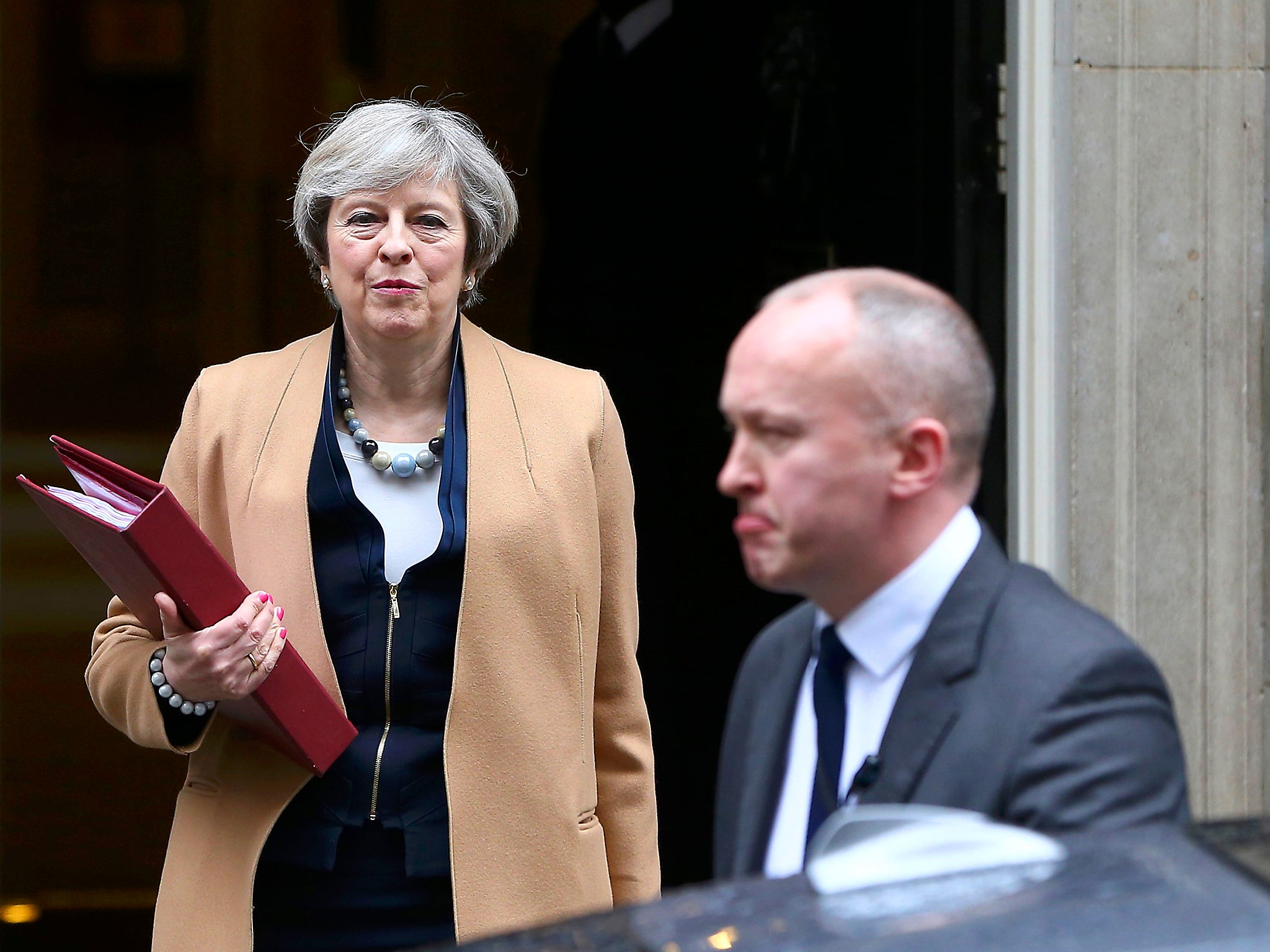European Court rules Theresa May's policy of stripping terror suspects of British citizenship is lawful
Judges at court in Strasbourg unanimously reject Sudanese national’s claim

Your support helps us to tell the story
From reproductive rights to climate change to Big Tech, The Independent is on the ground when the story is developing. Whether it's investigating the financials of Elon Musk's pro-Trump PAC or producing our latest documentary, 'The A Word', which shines a light on the American women fighting for reproductive rights, we know how important it is to parse out the facts from the messaging.
At such a critical moment in US history, we need reporters on the ground. Your donation allows us to keep sending journalists to speak to both sides of the story.
The Independent is trusted by Americans across the entire political spectrum. And unlike many other quality news outlets, we choose not to lock Americans out of our reporting and analysis with paywalls. We believe quality journalism should be available to everyone, paid for by those who can afford it.
Your support makes all the difference.A policy of depriving terror suspects of their British citizenship ramped up while Theresa May was Home Secretary has been upheld during a case heard at the European Court of Human Rights.
The judgment at the court in Strasbourg unanimously rejected a claim from a man who was barred from returning to Britain after he was stripped of his UK citizenship. The Sudanese national was suspected of taking part in terrorism-related activities to the extremist group al Shabaab.
The man – referred to as “K2” in the decision – brought a case against the measures after the Home Office repealed his British citizenship in 2010. He was born in Sudan in 1982 and arrived in Britain as a child before becoming naturalised in 2000.
The man’s complaint at the ECHR centred on Article 8 – the right to family life – of the European Convention on Human Rights.
But in its decision, the court said it accepted an “arbitrary” denial of citizenship may, in certain circumstances, raise an issue under Article 8. But it found no such issue arose in this case, and concluded the claim that deprivation of citizenship breached Article 8 was “manifestly ill-founded”.
Judges also concluded the decision to exclude the man from the UK was not disproportionate with the legitimate aim of protecting the public from the threat of terrorism.
During the coalition years Ms May ramped up the act of depriving individuals of their citizenship on terrorism related grounds. According to the Bureau of Investigative Journalism figures published last year showed the then Home Secretary had used the powers in relation to 33 people.
Critics of the programme have previously warned that it allows ministers to “wash their hands” of national suspected of terrorism offences who could be subject to torture and illegal detention abroad. The judgement is also likely to act a precedent and encourage Home Office officials to continue using the provisions.
The judges at the ECHR, however, said, in this particular case, the then Home Secretary acted “swiftly and diligently, and in accordance with the law”.
Those affected have their passports cancelled, and lose their right to enter the UK – making it very difficult to appeal against the Home Secretary’s decision.
Responding to the judgement, a Home Office spokesperson told The Independent: “This Government puts the safety of our families, communities and country first and we welcome the court’s judgement.”
“Citizenship is a privilege not a right and it is right that the Home Secretary can deprive an individual of their citizenship where it is believed it is conducive to the public good to do so,” they added.
Join our commenting forum
Join thought-provoking conversations, follow other Independent readers and see their replies
Comments